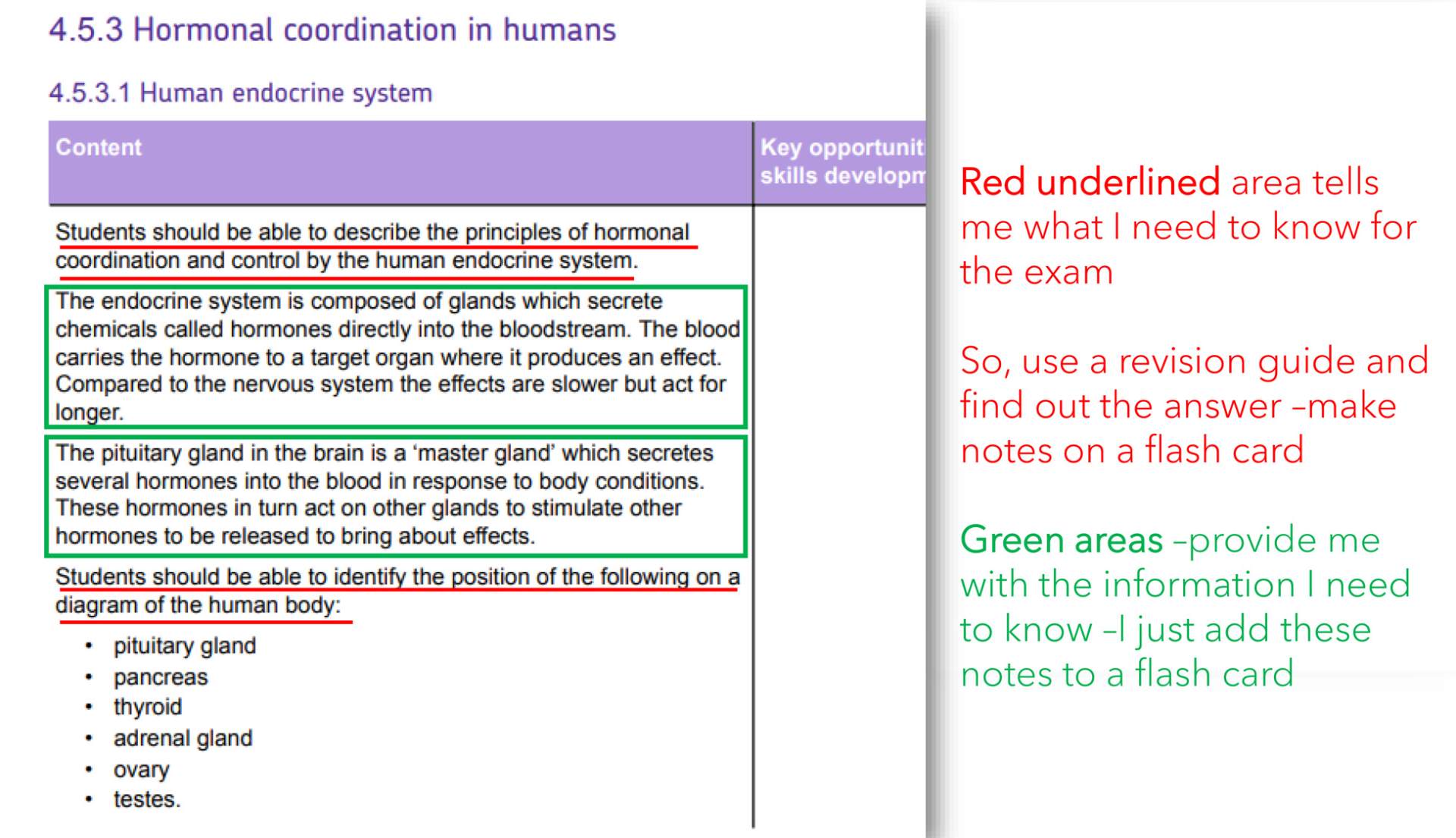GCSE Exams Preparation
This page will collect a range of useful resources, techniques and information about taking GCSE Exams.
Revision
Lea Manor recommends that pupils spend 2 hours revising on a school day and 7 hours revising on a holiday.
Pupils should follow a revision timetable to help them get the most out of their revision. See a blank timetable you can download and fill out below:
When making the timetable you should list all of your subjects and units. Prioritise the most challenging topics and subjects, not just revise the areas you are already strong in. You should also focus on high-mark, likely exam topics. The results of your revision shouldn't be measured in time spent revising a topic; test yourself to make sure you are retaining the information. Remember, it is your exam timetable and it can be adjusted to fit your needs. If your revision in one topic yields strong results and you are confident in an area, you can reduce its revision time on the timetable for other topics or subjects that you need to give more focus too.
Revision Techniques
There are a number of different techniques you can use to revise. It is important to use the technique that works best for you, there is no catch-all answer to successful revision, so give a number of methods a try until you find the right one for you.
The Pomodoro Technique:
| The Pomodoro Technique | ||||
| Select a single task to focus on | Set a timer and work continuously for 25 minutes | Take a productive 5 minute break | Repeat for 4 rounds | Take a longer break for 30 minutes and repeat |
The benefits of this technique include:
- No distractions
- Higher intensity to your work
- Get more done in less time
- Easier to plan your revision
- Greater focus
- No more procrastination
Flashcards:
One side of the flashcard has a question or term to define, and the flipside will have the answer. With each card you're testing yourself and separating the cards you got wrong from those you got right. Keep going through the wrong pile until you get every question right. Then repeat as often as needed until you can go through the entire deck without getting any of the answers wrong.
If you think making your own flashcards might be too time consuming, there are plenty of online virtual flashcard websites you can use, or you can purchase pre-made flashcards online.
Past Papers:
Doing past exam papers is one of the best ways to revise and have many benefits:
- They help you to work out which topics you know well and figure out what gaps you need to focus on
- By testing your knowledge, you can check your revision progress and feel more confident about what you already know
- Test your subject knowledge and help you gain confidence with the style of questions you will be asked and what will get you the marks
- They help you to identify topics which you find harder
- It is a great way to learn how long you have for each question and practice working to a time
Past papers can be marked against their mark schemes, which will be available from the exam providers' website. Using the mark scheme will help you to:
- Understand how marks are allocated
- Analyse mistakes and missed marks
- Strive for confidence to answer similar question in the future
- Identify challenging topics
Doing a past paper in exam conditions and marking your work against the mark scheme will help you to identify what grade you would have got the year the past paper was the final exam.
Revision Resources
There are a number of revision platforms available for you to utilise. Some work across all subjects, but others are subject specific; speak to your subject teachers for more subject specific resources you can use.
GCSE POD
GCSE POD is a service you can access which has revision resources for all of your subjects. Lea Manor has a subscription to GCSE POD so all you need to do is login with your school email address to instantly have access to all of these resources.
With your GCSEPod account you can:
- Access over 6,000 short videos (Pods) covering 27 GCSE subjects, including Maths, English and Science
- Free, unlimited streaming access to the GCSEPod website
- Unlimited downloads to take the videos anywhere
- Everything is filtered for the curriculums you are being taught
https://members.gcsepod.com/login/
SQA My Study Plan
SQA My Study Plan is a free app available on both Apple and Android devices. It will help you to create a balanced revision timetable taking into account when your exams are, when you want to revive and the subject areas you want to focus on most.
Downloadable Resources
Science
KayScience
KayScience is a revision tool for both Triple and Combined Science. Lea Manor has a subscription to KayScience so all you need to do is login with your school email address to instantly have access to all of these resources. If you are having trouble logging in, please speak to Mrs N Noreen or your Science Teacher.
Science Google Classroom
A range of resources to help you with both Triple and Combined Science is available on the Year 11 Science Google Classroom including revision checklists, knowledge mats, PiXL PowerPoints, and more. To login to the Google Classroom use the class code: xblze4u
Maths
MathsWatch
MathsWatch is a revision tool for both Foundation and Higher Maths. Lea Manor has a subscription to MathsWatch, so all you need to do is login to have instant access to all of these resources.
If you are having trouble logging in, please speak to your Maths Teacher, or drop in to IT at lunchtime for support.
Login Link: https://vle.mathswatch.co.uk/vle/
Year 11 Subject Information Booklet (2025)
Year 10 Revision Strategies (2025)
Exam Specifications
An exam specification is a list of all the topics that can come up in a particular exam paper. Using the specification to structure your revision means that you won't miss out any key areas and avoids you wasting time on learning content you can't be tested on.
The best way to use an Exam Specification is to go through it line by line to identify what can come up in the exam and what can get you marks. You should go away and make sure you know how to do everything that is on it. It's important to also keep an eye out for any keywords and definitions mentioned in the specification as the exam papers love to test these.
Below is an example page of an Exam Specification, and how you should use it in your revision:

The Exam Specifications for the GCSE Exams taken at Lea Manor are below. You should also be aware of the exam board for each of your exams, and visit the exam board's website for additional resources.
| Exam Board | Subjects |
| AQA | Art, Combined Science, Triple Science (Biology, Chemistry, and Physics), Drama, English Language, English Literature, Geography, MFL French, MFL Spanish, R.E |
| Edexcel | Business Studies, History, Maths |
| Eduqas | Food Preparation & Nutrition, Music |
|
OCR |
Computing |
|
Cambridge Nationals (OCR) |
Sports Studies |
- Art Exam Specification AQA
- Business Studies Exam Specification Edexcel
- Combined Science Trilogy Exam Specification AQA
- Computing Exam Specification OCR
- Drama Exam Specification AQA
- English Language Exam Specification AQA
- English Literature Exam Specification AQA
- Food Prep Nutrition Exam Specification Eduqas
- Geography Exam Specification AQA
- History Exam Specification Edexcel
- Maths Exam Specification Edexcel
- MFL French Exam Specification AQA
- MFL Spanish Exam Specification AQA
- Music Exam Specification Eduqas
- RE Exam Specification AQA
- Sports Studies Exam Specification Cambridge Nationals OCR
- Triple Science Biology Exam Specification AQA
- Triple Science Chemistry Exam Specification AQA
- Triple Science Physics Exam Specification AQA
JCQ Information & Forms
- GCSE Grading Structure
- JCQ Information for candidates Non examination assessments
- JCQ Information for candidates Coursework Assessments
- JCQ Information for candidates On Screen Examinations
- JCQ Information for candidates Written Examinations
- JCQ Information for candidates Privacy Notice
- JCQ Preparing to sit your exams
- JCQ Social Media Infographic
- JCQ Warning to Candidates
- Unauthorised Items Poster


